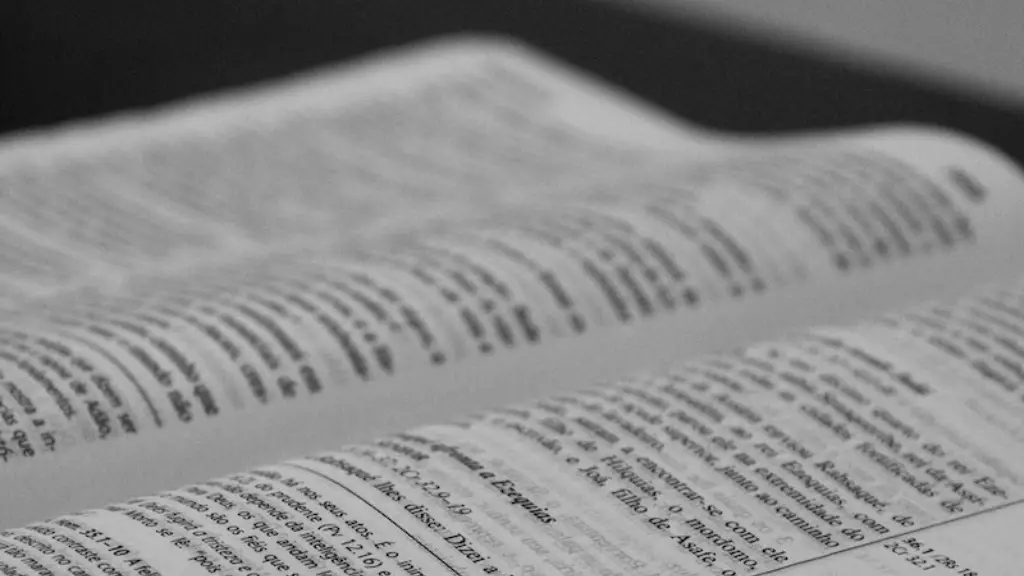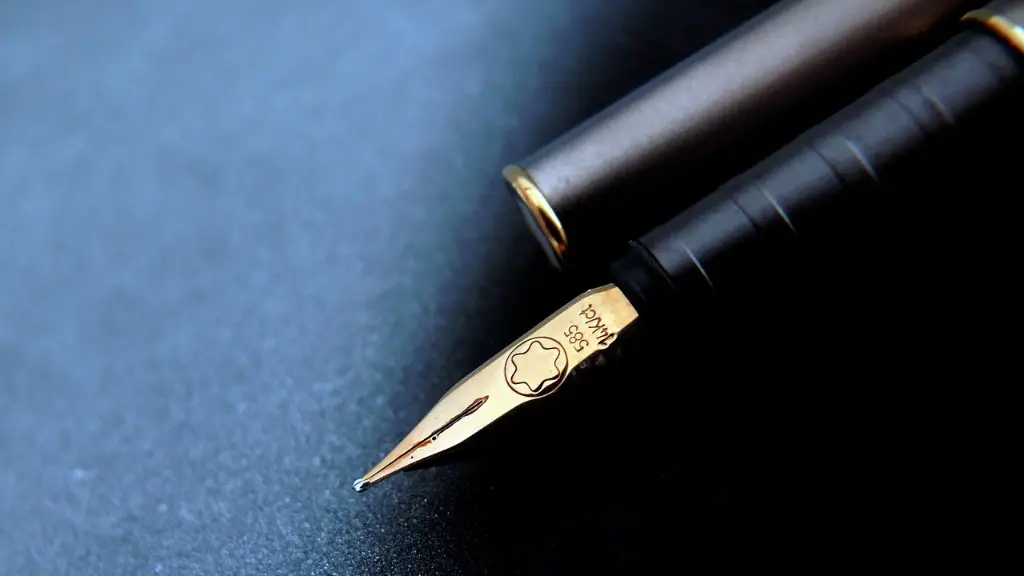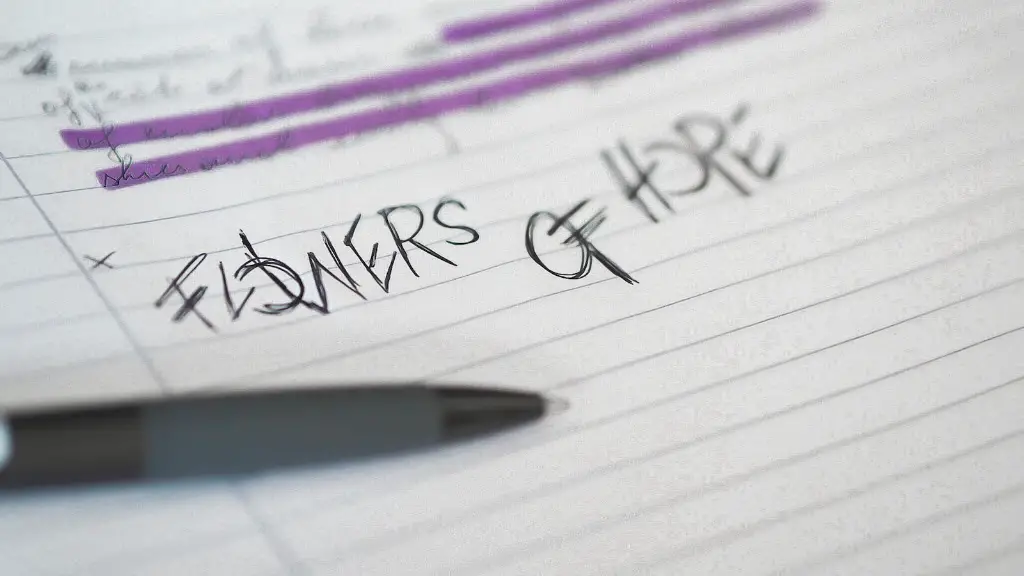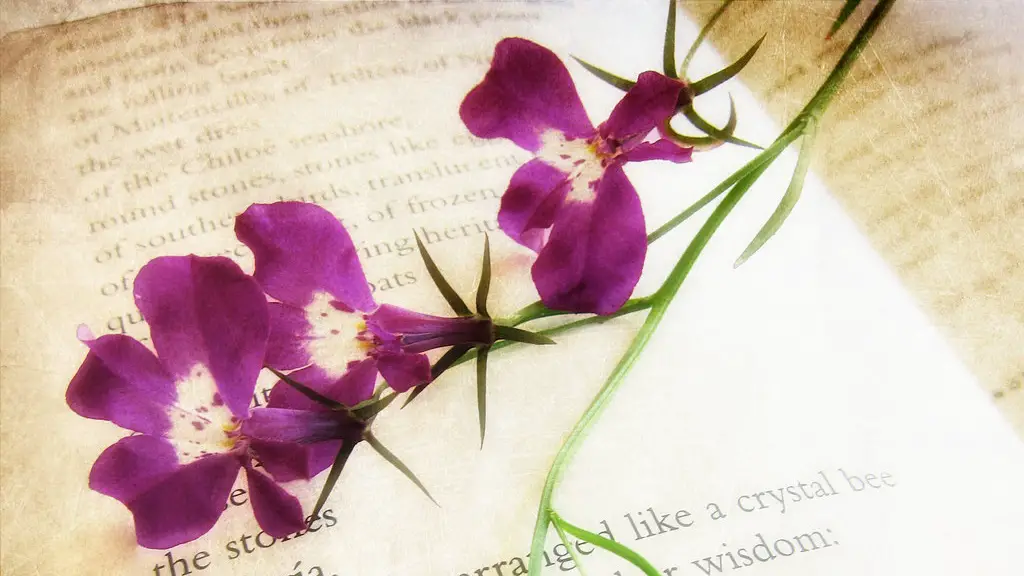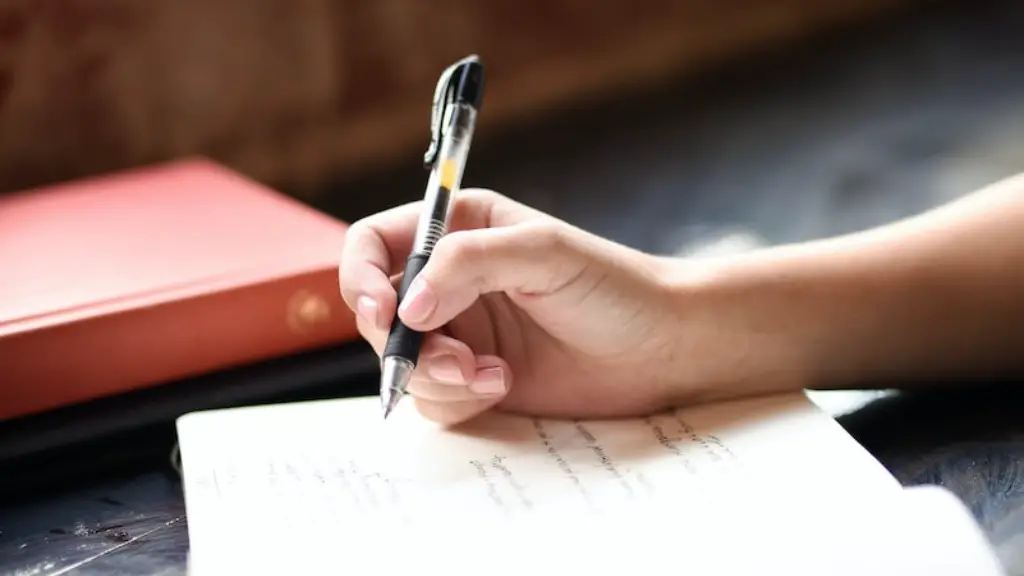Father of Poetry
To many, proclaiming who the father of poetry is can be seen as an impossible task. After all, with so many genres and styles, any author of works deemed ‘poetry’ can be assigned the role of leader, innovator and inspiration. To tackle this difficult question, it is important to gain an understanding of the progression of the form from its origins, view the works of influential figures throughout history and explore their impact, and contribute opinions and insights from the viewpoint of the modern poetry audience.
Origins of Poetry
It is widely agreed that the originator of poetry was Homer, the prominent ancient Greek poet, circa the 8th century BCE. While much of his work was written in a narrative format rather than relying on structured verse, it is his works which demonstrate the beginnings of what we know as poetry today. Through his movement through the different regions of Greece, Homer collected local narratives to craft epics of his own, seen in ‘Iliad’ and ‘Odyssey’. He was also one of the first authors to bridge the gap between simple recounting of stories, and the more creative satire, boasting and epic boasting. As a result, the category of ‘epic poetry’ is largely attributed to Homer.
Influential Figures of Poetry
Throughout subsequent centuries many other influential figures have dedicated their time to writing poetry and have expedited the development of the form into what it is today. This includes literary superpowers such as William Shakespeare, who is celebrated for introducing ‘sonnets’, plays and narrative poems. As a prominent figure of the English Renaissance explorative of themes such as love, jealousy and psychology, Shakespeare’s work is enjoyed not only in its original language, but by audiences around the globe. However, the scale of influence of Shakespeare’s work is somewhat disputable, when one considers the cultural revolutions seen through African and Caribbean poetry from the 16th century onwards.
It is these revolutionary figures, such as the poet-activists Phillis Wheatley and Maya Angelou, who demonstrate just how powerful and influential poetry can be. Wheatley, an African-American poet of the 18th century, made notable efforts in bringing issues of racial discrimination to the forefront of America’s colonial community, as explored in her 1772 collection ‘Poems on Various Subjects, Religious and Moral’. Similarly, Angelou used her platform of work to empower and inspire millions of people, through her own personal exploration of different cultures and identities, seen in pieces such as ‘Still I Rise’ (1978) and more. The liberty to write in a particular style, feel or format that is both personal and also relatable to a broad audience, is a concept often attributed to the modernisation of poetry, potentially leading to its newfound popularity.
Views of the Modern Audience
Now, in 2021, the form of poetry has established itself on a platform of far greater reach than centuries before. This is largely attributed to mediums such as the internet, where contemporary poets such as Warsan Shire and Tyler Knott Gregson have pushed for and achieved worldwide recognition. While their content varies greatly, a notable and commonly discussed element of their work is the relatable and emotive nature, achieved through simplicity of vocabulary, yet rich in both personal content and general themes. As such, the voice of poetry has, rightly so, been amplified to a new level of mass appreciation.
From the aforementioned contributions of poets spanning hundreds of years, it is clear that each poet to have achieved distinction, (and those who remain less acknowledged), have pushed the boundaries of what it means to write poetry. While some are renowned for the style of their work, others are celebrated for the message of their work and its purpose. Therefore, the role of the ‘Father of Poetry’ must take into account the gradual development, cultural effects and intimacy of this raw form of expression. While Homer might be the figure that started it, he is definitely not the figure to finish it.
Different Poetry Genres
When considering the evolution of the poetry genre, it is important to consider the many different types of work that have become popular in contemporary society. One of which is the ‘spoken word’ genre, a branch of literature combining the power of both words and the emotion emitted from its performer. Spoken word research has culminated in the creation of an anticipated and renowned outlet for young people to explore the many issues facing society today, from mental health to race relations and everything in between.
Slam poetry is another genre dedicated to this realm of performance. Scientists such as Alan Pease have used their research to demonstrate the potentially calming effect of such styles – with their use of rhythm and verse, slam poets are often encouraged to generate deep links to the audience’s emotions through well-crafted delivery of their text. The ease of access to such poetic works in the online world has introduced a newfound level of availability to these performances, contributing to the genre’s overall growth.
Political poetry has never been more relevant in our society today. In many states, society has been quick to voice disappointment and anger towards the state of some political systems, leading to the increased recognition of platforms such as the Guardian and Common Dreams websites, who’s political works are often considered to be on the frontline of resistance and accountability.
Finally, there are a plethora of experimental and hybrid poetry styles now deemed commonplace in the 21st century portfolio. This includes elements of graphic and nonlinear works, as well as structural iterations. As such, the boundaries that predict contemporary poetry have been pushed beyond not only the ones set by Homer all those centuries ago, but also those set by the likes of William Shakespeare and other influential figures of the past.
The Emotional Impact of Poetry
While each new era of poetry holds its own distinct quality, the emotional evaluation and perception of readers is an area often shared, seen most apparently in the work of Homer and Shakespeare. The emotive element of poetry lies in the depths of its intended meaning, often hard to decipher. This bridge between the poet and reader, especially when both feeling the same emotion – for example, evoked by the presence of a tragic twist – is a bond that has maintained literature as the powerhouse of discourse and expression that it is today.
Not only does such an emotive bond provide a moment of reflection, but also encourages an interest in the power of words and how they can entwine with that of music to create a much greater impact. As stated in the work of psychologist Martha Wolfenstein (1954), music, when partnered with poetry, can create a profound sensory impact, regardless of the readers emotional and cultural background. As such, the music of poetry can be seen as equally as influential in developing and sustaining an individual’s relationship with the form.
The Power of the Pen in Poetry
The relationship between the ‘pen’ and the ‘page’ is fundamental to the interpretation of a poem, especially in literature prior to the 20th century. The varying structures, techniques and illustrations of a poem, often predetermined by the poet, is often seen as the work’s main attraction, with a ‘message’ acting as a welcome outcome. This was particularly the case with the form of ‘acrostic’, established by both the heartbreak of Sappho and the creativity of the Romans. Furthermore, symbols and other illustrations in works such as Chinese and Japanese poetry, yield a measured connection between understanding and interpretation, as readers may not always be able to detect them with the same accuracy.
The ability to illustrate the way in which a poem is read and understood through written form, as opposed to spoken form, is a notable advantage of this type of poetry. The consistency of the piece is ensured, usually with the poet having more of a say over how their work is digested. This is echoed in the poetry of the modern age, where authors such as Langston Hughes and Alfred Tennyson have urged readers to perceive the poem with their own subjective interpretation, the poet providing only an outline of what the work should be understood as.
Poetry for the Future
As poetry continues to establish itself as a powerful platform for expression, its form is likely to continue to develop and move with the current trends and issues faced by society. More recently, poetry has done well to create space for topics such as identity, gender and sexuality to be addressed in an authentic and intimate way, which could not be achieved with the spoken word. The focus on the lyricism of the works, often associated with rhythm and melody, appear to be of the utmost importance to many readers and creators of work alike.
As the need for social change and communal understanding continues to gain momentum, so will poetry’s popularity in addressing such issues. With each new age of poets come new styles, ideas and innovations, leading to this formate continuing to stand out among the many mediums of expression available to the modern world. In this sense, then, Homer might have certainly been the ‘father of poetry’ in its infancy, but there is no doubt that many more figures have been essential to the genre’s current success.
Finding Your Voice Through Poetry
Most recently, with the advancements in technology and the increase in opportunity for exposure in the literary market, there has been a wider call for personalised works. It is from this seed of originality that the value of a unique voice is born. Many consider those who, both contemporary and within the canon, have managed to develop a strong presence and maintain their conscience throughout the entire collection of their works as the most powerful poets.
This is not an easy feat. It requires a fundamental understanding of one’s self, mentally, emotionally and spiritually. It is from this that the most successful works arise, as readers who may otherwise be removed from a poem can pick up on the importance of the work being created and the impact it has on not just the author, but its readers as well.
The larger purpose poetry has today is the allowance for a truthful and sincere exploration of self and other. With this, poetry can become an outlet for education and awareness, alongside emotional healing and individual catharsis. The advocacy of one’s story is, in a sense, the responsibility of poetry, that has been and will continue to be taken seriously by its authors and appreciated by its readers.
Poetry Reflection and Response
Being able to respond to the work of poets, whether in written form or in discussion, is an important part of engaging with the text. Being able to reflect on the message of the work and validating that of the author is essential in understanding the gravity of the message they are trying to produce. In this sense, readers are able to turn the poem into a tool of discussion and debate, and in the same breath, a form of healing and comfort.
The power of reflection and response should not be underestimated. It is this process that reveals a great sense of understanding and trust between the poem, the reader, and the poet. It is the closest tangible presence of a poem’s impact that can be felt. As such, readers are encouraged to listen, learn and respond to the work seen in mainstream and lesser-known avenues of poetry.
The Ability to Connect Through Poetry
Finally, the ability of poetry to connect with readers through a wide range of explorations, interests and experiences is what makes the form so beloved. From the stimulating exploration of everyday topics to the abstract criticism of human life, readers connect with verses of poetry that bring out the creative potential within. It is this potential that further encourages exploration of other works, a constant motivation to seek out poetry of more depth and flair.
In its entirety, poetry is an almost unparalleled platform of expression. Its origins date as far back as the 8th century BCE, but it has since developed beyond that of its predecessor to become a means of self-reflection, communication
